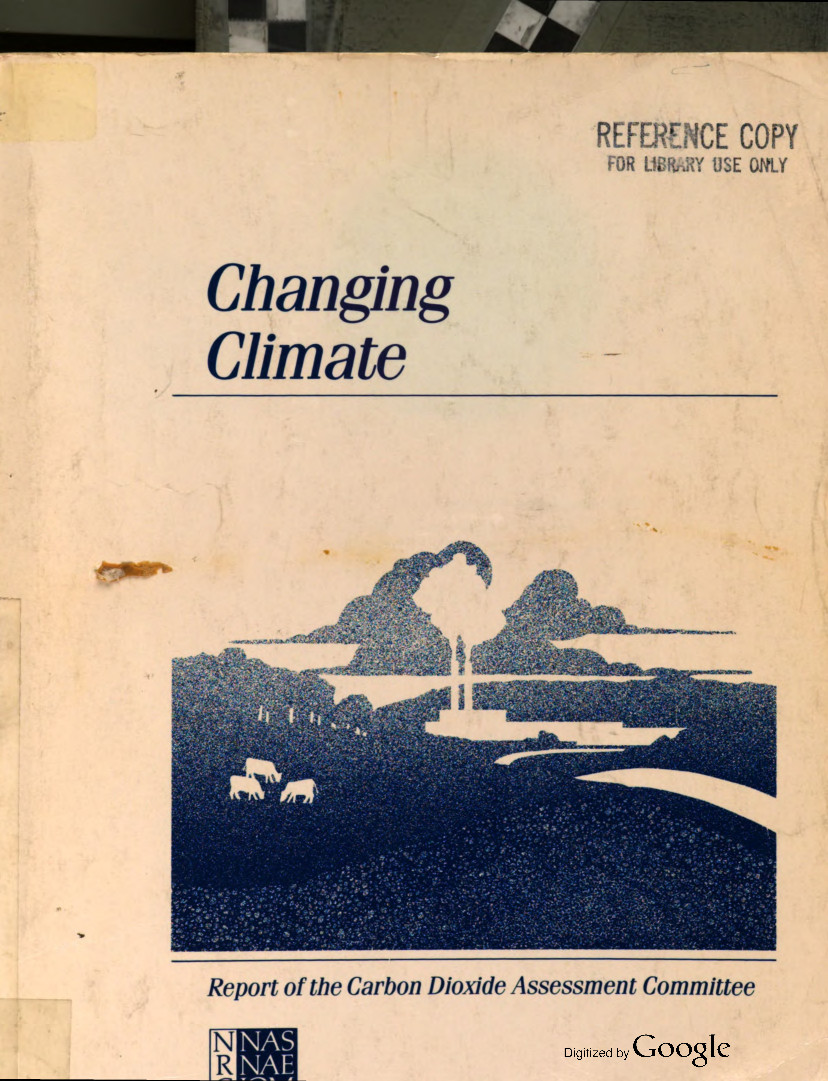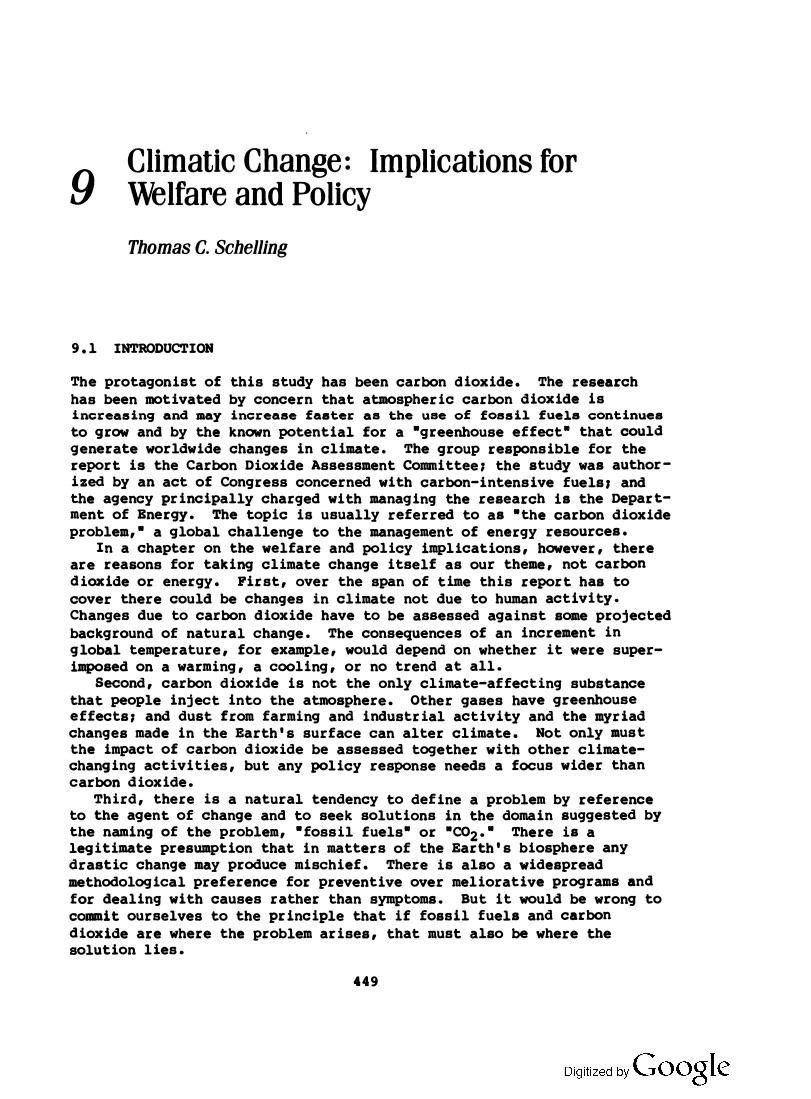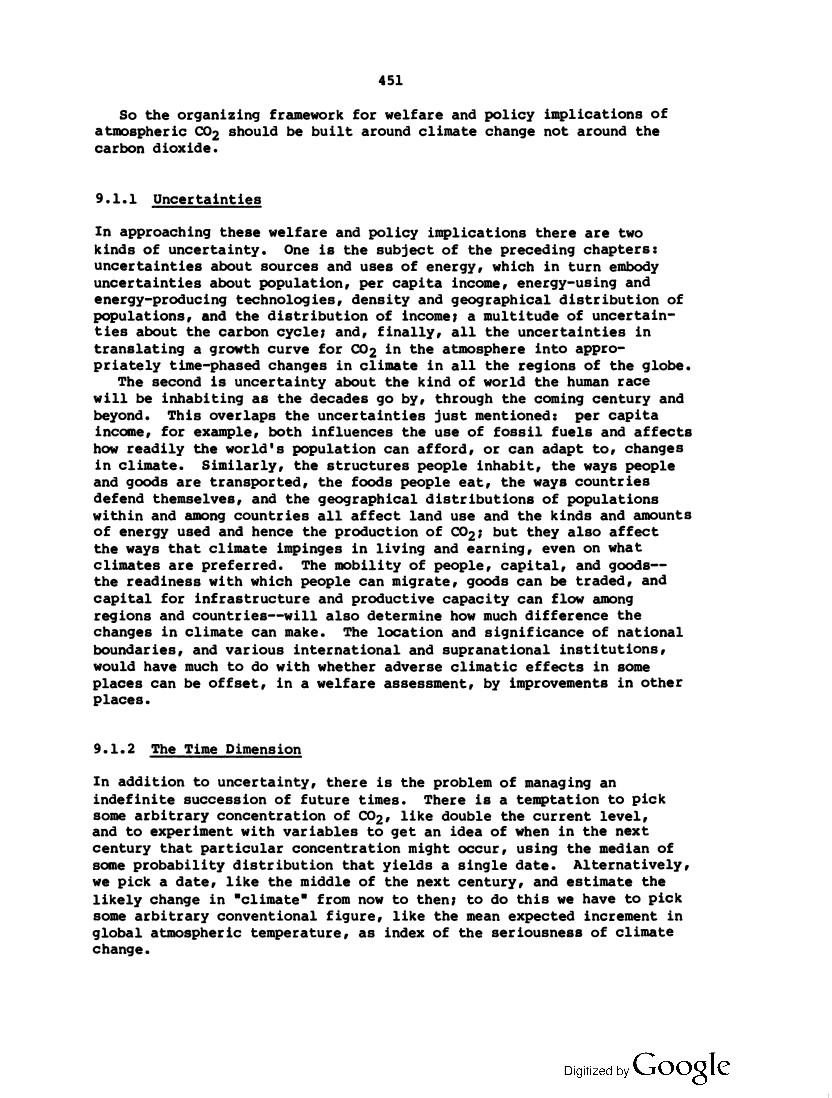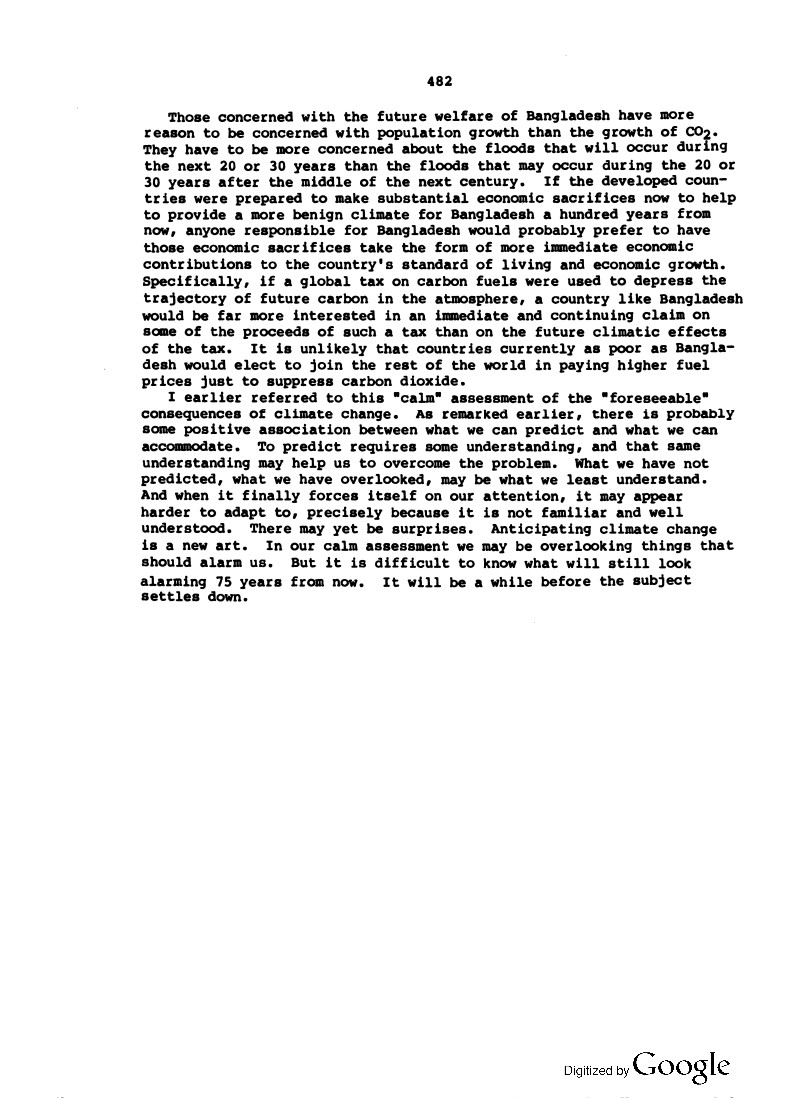

In 1980 the National Academy of Sciences was authorized by Congress to undertake a comprehensive study of CO2 and climate. The report would be written in an unusual way, not written collectively, reviewed by all committee members and reviewed again by outside reviewers, but individually signed chapters, because they could not agree on an integrated asessment (Oreskes and Conway, 2010). Chairman of the committee was Bill Nierenberg. The committee members were prominent physical scientists, amongst who Roger Revelle, and two economists: Tom Schelling and William Nordhaus. The tone and conclusions from the economists' chapters stand in contrast to the conclusions of the chapters written by the physical scientists.This way, non-peer-reviewed chapters ended up in a National Academy of Sciences report to Congress.
Roger Revelle, in his chapter "Probable Future Changes in Sea Level Resulting from Increased Atmospheric Carbon Dioxide" warns about the disintegration of the West Antarctic Ice Sheet and the catastrophic consequences this would have. "The resulting worldwide rise in sea level would be between 5 and 6 m. The oceans would flood all existing port facilities and other low- lying coastal structures, extensive sections of the heavily farmed and densely populated river deltas of the world, major portions of the state of Florida and Louisiana, and large areas of many of the world's major cities" (Nierenberg et al, 1983, p. 442).

No more than 7 pages after this dire warning that clearly links CO2 emissions to global warming with devastating effects, Tom Schelling's writes that we should not look at the cause of climate change when looking for solutions (Nierenberg et al, 1983, p. 449). He later states that because we do not know how people will live in the future, we can't say for sure that climate change will be a negative experience for them. "Similarly, the structures people inhabit, the ways people and goods are transported, the foods people eat, the ways countries defend themselves, and the geographical distributions of populations within and among countries all affect land use and the kinds and amounts of energy used and hence the production of CO2; but they also affect the ways that climate impinges in living and earning, even on what climates are preferred" (p. 451).

Last but certainly not least, he concludes his chapter by arguing against a global fossil fuel tax to diminish emissions. He says poor countries that will suffer most from sea level rises such as Bangladesh would probably prefer immediate economic support over the long term positive effects of diminished CO2 emissions. "If the developed countries were prepared to make substantial economic sacrifices now to help to provide a more benign climate for Bangladesh a hundred years from now, anyone responsible for Bangladesh would probably prefer to have those economic sacrifices take the form of more immediate economic contributions to the country's standard of living and economic growth" (p. 482). The chapter was a call for a "calm" assessment of the problem, more research was needed and direct action should be avoided until the science contained no more uncertainties.
In Chapter 1, the problem of mass migration it put into perspective. "Not only have people moved, but they have taken with them their horses, dogs, children, technologies, crops, livestock, and hobbies. It is extraordinary how adaptable people can be in moving to drastically different climates" (p.53). This statement reads a lot less calming then it did back then, now that mass migration due to droughts, floods and resulting armed conflicts has started.

Source: Google books: https://books.google.nl/books?id=TkErAAAAYAAJ
Nierenberg et al., Changing Climate: Report of the Carbon Dioxide Assessment Committee. Washington D.C., National Academies Press, 1983.